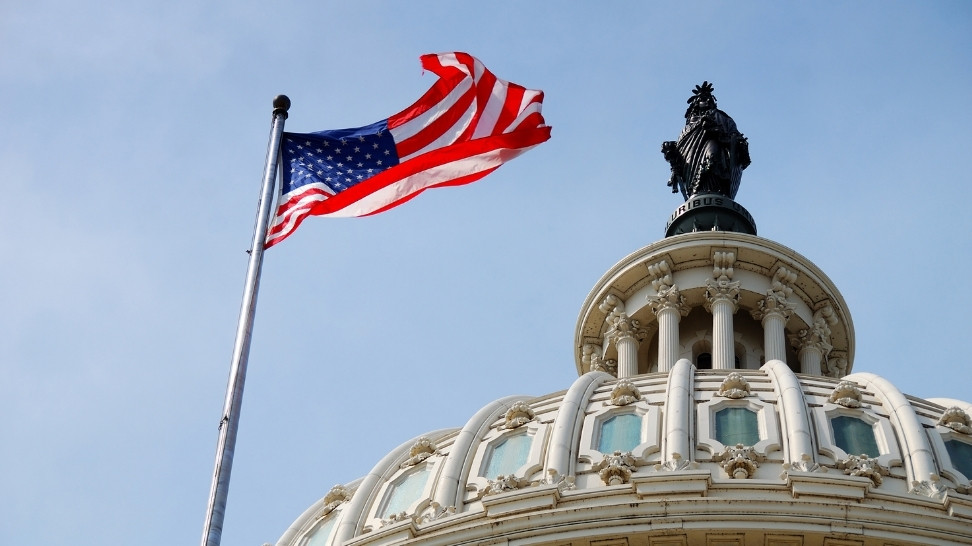Currently, the cryptocurrency industry can be likened to the Wild West. As we recall from old westerns, the Wild West wasn’t a great place for commerce, as random shootouts could break out at a moment’s notice and the town authority wasn’t necessarily the one on the side of the law. In the Wild West that is the cryptocurrency industry, there have been recent rumblings of a new sheriff coming to town with plans to regulate the cryptocurrency industry. In fact, there are several potential sheriffs. The Securities Exchange Commission, Commodities Futures Trading Commission, and the Conference of State Bank Supervisors have all begun taking steps to claim territory in the cryptocurrency regulation space. Once an unregulated free-for-all, it appears that cryptocurrency will soon have to live within some rules and boundaries.
Regulation – the end of growth and innovation?
The obvious question is, what impact will the upcoming regulations for crypto have effect on the cryptocurrency industry? Regulations are often seen as cumbersome and expensive red tape that stifle free trade and hurt businesses. In reality, regulation of crypto could actually be a good thing, allowing crypto to emerge from the shadows as a mainstream contender in the fintech industry. In other industries, regulation has had a beneficial impact on the country. Without environmental regulations, our lakes, air and wildlife would suffer, leading to a significantly reduced quality of life for residents of our country. Energy regulations protect the world from pollution caused by fossil fuels. Consumer protection regulations keep Americans from being preyed upon by dishonest advertising and misleading contracts. Regulation is necessary in any government that wants to keep the unethical actors from pursuing gains at any cost.
At the industry level, regulations have helped other industries by providing a level playing field, ensuring that each company plays by the same rules. If all crypto companies have to abide by the same regulations, that puts the odds of a fair competition within easier reach. Unfortunately, regulations don’t benefit all companies evenly. As Geoffrey James argues, “Government regulation either favors big business or (very rarely) favors small business.”[1] But he argues that the lack of regulation only benefits big business, which has the resources to compete in a laissez-faire market.
While lack of regulation benefits big business, it also adds to the Wild West imagery. If “anything goes,” consumers will understandably be hesitant to engage, preferring to stick to the tried-and-true industries that have regulated consumer protection. Therefore, one important thing that regulation can provide for any industry is legitimacy. This can be especially important in the fintech world. Cryptocurrencies are newcomers to the finance world and regarded with suspicion by the average investor. This suspicion is not unwarranted, as there have been some highly publicized scams in the last few years that have left the public wary of these investments. Regulation of this industry could give investors and the companies they work with a higher confidence level when adding cryptocurrencies to their portfolios.
Cryptocurrency’s road to the mainstream
Cryptocurrencies such as bitcoin have been around for years. Blockchain has had everyone from bankers to librarians eager to exploit it for their benefit. But in just the last three years, from 2018 to 2021, digital currencies have begun to gain some serious steam. In March of 2018, the SEC, FinCEN, and the CFTC all issued statements about digital currency. The SEC’s “Statement on Potentially Unlawful Online Platforms for Trading Digital Asset,” and the CFTC’s court victory over Coin Drop Markets, both warned of the dangers of the unregulated cryptocurrency industry and the threat it posed to investors. FinCEN, in a statement to Democratic Senator Ron Wyden argued that cryptocurrency exchanges were being used to help facilitate money laundering by the likes of drug dealers and terrorist organizations. The timing of these three public responses, all of which were published within a 24-hour time span, sent a clear message about the government’s stance on digital currency at the time.[2] Also in March of 2018, in reaction to Venezuela’s state-sponsored digital currency, President Trump issued an executive order prohibiting all Americans from transacting in or financing any Venezuelan digital currency.[3]
In 2019, regulatory talk began to really ramp up. As investors began to see potential for large payouts in the cryptocurrency space, the volatility of the market increased. Massive price swings could make and lose fortunes in a single day. This volatility, while attractive to a small group of investors, served to keep more risk-averse investors at bay. Those on the outside looking in began calling for regulation of cryptocurrency in order to level out the volatility and make the markets safer for both investment companies and retail investors.[4]
The digitization of financial services was well on its way to gaining widespread adoption before 2020, but the pandemic shifted that adoption into overdrive. Suddenly there was an immediate need for commerce and banking that did not require leaving home. The pandemic increased the need for and interest in digital currencies as the demand for touchless technologies spiked in all sectors. Restaurants, stores and delivery services touted contactless payments and banks scrambled to implement fully remote services. Always ready to cash in on trends, the venture capitalists were quick to fund the fintech companies that had positioned themselves to partner with these service industries.[5]
Unfortunately, the regulatory world is not currently prepared for the sudden surge in cryptocurrency and other financial technologies. Part of the issue is that as digital currencies and fintech were taking off, lawmakers were occupied with handling the intricacies of the pandemic and the legal and social ramifications of lockdown on our citizens and economy, not to mention the chaos that surrounds an election year. Now the calls for regulatory reform are loud and clear. Cryptocurrency companies and the institutions that want to invest in them have begun to call for regulation, recognizing that the lack of clear rules hinders their growth and innovation. What form that regulation takes remains to be seen, but the consensus seems to be that the current situation will both serve as a green light to scammers and hinder the ability of legitimate companies to operate freely in the United States.[6]
Regulation at the state level
The current regulatory landscape for digital currency is inconsistent at best. At the state level, many governments have grown tired of waiting for the federal government to come up with a cohesive plan and have put together their own regulations governing digital currencies. These regulations have varied widely in their trust, or lack thereof, of the fintech industry. Most states that have addressed digital currencies have limited their focus to how these products fit into the state’s current money transmitter laws. Some states, such as New York and California, have chosen to take a more heavy-handed approach to regulation and enforcement.
In New York for the last six years, cryptocurrency businesses have had to apply for a special license, called a BitLicense, to operate in the state. The requirements companies must comply with to get this license include consumer protection, cybersecurity, Know Your Customer, and Anti-Money Laundering rules. BitLicenses also only cover specific pre-approved cryptocurrencies, which include binance, bitcoin, ethereum, gemini dollar, litecoin, pax gold, and paxos standard. Crypto businesses initially balked at these strict regulations. In the end, however, New York’s position as a financial giant meant that they couldn’t ignore the regulations for long. Now companies tout their BitLicense approval as a sign of distinction. New York Department of Financial Services Superintendent, Linda Lacewell, told Bloomberg, “Companies came to realize that if they received a license from us, that means that they had been vetted… and that DFS was willing to say this company is ok to do business, to interact with NY consumers. Reasonable regulation provides a safe place to innovate.”[7]
On the other coast, California has proposed that all cryptocurrency companies get approval from the Department of Business Oversight before they can operate in the state. The move is designed to help better protect consumers. In 2020, the governor signed the California Consumer Financial Protection Law. This new law creates a Division of Consumer Financial Protection to monitor a variety of emerging markets, including cryptocurrencies. As with the regulations in New York, crypto businesses will likely balk at the outset, but in the end, financial businesses need to do business in California, so they will have to fall in line.[8]
On the other side of the coin, other states are choosing to make their state more friendly to fintech companies. Wyoming would like to be known as the most crypto-friendly state in the country. They have passed numerous laws designed to attract cryptocurrency companies to operate in their state. One of these laws, the “Utility Token Bill,” exempts utility tokens from the state’s securities laws provided the issued token and its issuer meet certain requirements. Wyoming also amended its Wyoming Money Transmitter Act to provide an exemption for virtual currency.
In 2019, Colorado enacted the “Colorado Digital Token Act.” Official communication from the state explains that this bill “provides limited exemptions from the securities registration and securities broker-dealer and salesperson licensing requirements for persons dealing in digital tokens.” The state is also actively exploring blockchain for use in a variety of agencies and government endeavors.[9]
As these four states show, regulations can vary widely from state to state, making it difficult for fintech companies to operate in multiple states. The Conference of State Bank Supervisors has put its hat into the ring to help states better handle regulating digital currencies. The CSBS Fintech Industry Advisory Panel was created to “support state regulators’ increased efforts to engage with financial services companies involved in fintech.”[10] In 2019, the panel released a list of recommendations such as developing a menu of state licensing requirements for multi-state consistency, building a state examination system, and creating a central repository of licensing and fintech-related state guidance. These efforts, and several more, have already begun to be implemented and should help states better manage the influx of digital currency in their state.
The CSBS’ efforts are meant to help states better regulate cryptocurrencies, but they would actually benefit companies in the crypto space as well. If states are going to create a patchwork of regulations, companies are going to need to employ teams to ensure that they are complying with the various regulations on a state-by-state basis. What the CSBS is proposing will help to provide a level of consistency in state cryptocurrency laws. Consistent language and licensing requirements will allow companies to more easily monitor their compliance. In addition, with the CSBS providing consistent guidance to the states, they can ensure that different states interpret statutory language in similar ways, further enhancing companies’ ability to operate in many different states. Consistency in state regulations will help fintech companies stay in compliance, which will further aid in their bid for legitimacy.[11]
Regulation at the federal level
While state attempts at regulation are admirable and certainly understandable given the lack of clear direction at the federal level, it is simply impossible to keep digital currencies within a state border. The national and even global tendencies of digital currency require a federal-level response to regulation. State efforts have put a proverbial finger in the dike, but the dam will eventually burst.[12]
On the federal level, regulations have focused on bits and pieces of digital currencies, but lack a cohesive approach. The issue comes down to how the asset is classified, and different agencies have different opinions on classification. For example, the SEC has determined that a few cryptocurrencies such as bitcoin are not securities, and fall outside their jurisdiction, but most others, such as initial coin offering tokens, are securities and, therefore, subject to SEC regulation. The recent confirmation of Gary Gensler as SEC Chairman signals a potential shift in the SEC’s regulation of cryptocurrencies. Gensler is a former professor who taught a course on cryptocurrency at MIT. He has publicly stated that cryptocurrency needs clear rules in order to be fully adopted as a mainstream currency. In a recent interview, he stated that the SEC is looking into seven key issues: initial coin offerings, trading venues, lending platforms, DeFi, stablecoins, custody, and exchange-traded funds.[13] Recently, Gensler called on Congress to expand the SEC’s authority to regulate cryptocurrency trading, lending and decentralized finance platforms.
The Commodities Futures Trading Commission (CFTC) classifies some cryptocurrencies, such as bitcoin, as commodities. This interpretation got a judicial boost in CFTC v. McDonnell, when the U.S. District Court for the Eastern District of New York ruled that cryptocurrencies “fall well within the common definition of ‘commodity.’”[14] However, the CFTC’s authority over cryptocurrency commodities only extends to fraud cases and the enforcement of Commodity Exchange Act violations. While this authority allows the CFTC to pursue those who violate the CEA, it does not allow them to enact regulations that would prevent the violations in the first place. As CFTC Acting Chairman Rostin Benham describes his agency’s role, “Some people call this new technology ‘the Wild West.’ I guess my agency is the equivalent of Wyatt Earp in Tombstone.”[15] Earp’s strong response to lawbreakers likely had some would-be outlaws giving Tombstone a wide berth, but even he was only as powerful as the laws he had to work with.
Regardless of who ends up winning the battle for control over cryptocurrency, federal regulation of crypto may get worse before it gets better. There is discussion that the first step in federal regulation may be to implement policies that will slow the mainstream adoption of digital currencies. In December 2020, the Department of Justice’s Cyber-Digital Task Force released their 83-page cryptocurrency enforcement framework. This document was described by one fintech attorney as adopting a “consistently sinister tone, presenting a cavalcade of crypto-currency related illicit activity and vice.” While the DOJ’s stance is understandably on the side of law enforcement, the tone was clear. As one fintech executive put it, “The message is blockchain and digital currencies are not welcome in the U.S.” But adopting regulations that hinder the growth of fintech may be a necessary first step that gives lawmakers and regulators time to assess the issues at hand, determine where each agency has jurisdiction, and agree on how those pieces fit together. In the end, a cohesive approach will benefit all players, from crypto business to investors.[16]
Can cryptocurrencies be regulated? The short answer is yes, and all indications lean toward the federal government making clear inroads in cryptocurrency regulation in 2021 and beyond. But effective legislation will require leaning on the very companies that the regulations are seeking to control. Just as the CSBS relied on a panel of companies in the fintech industry to create their guidance for the states, federal regulations will require input from those who live and breathe in this space. Government agencies and fintech companies will need to be equally involved to ensure that the new regulations are both effective and that they don’t stifle innovation.
It has become clear over the last several years that crypto isn’t going anywhere. In order for it to take what many believe is its rightful place in our financial system, regulation is imperative. Regulation benefits both the growth of the industry and American peoples’ best interests. Even fintech companies themselves recognize that without regulation they won’t achieve true legitimacy in the eyes of the government or investors. Stop signs and speed limits regulate the roads, but these safeguards are exactly the reason people feel safe using our transportation infrastructure. Digital currency companies are looking to the government to make people feel as safe investing in bitcoin as they do driving on U.S. highways.
For more information on how to strategize your cryptocurrency investments, contact our skilled cryptocurrency and tax advisors by filling out our contact form or via email at info@blakeharrislaw.com.
References
[1] James, Geoffrey. October 25, 2010. CBS News. Government Regulation is Good for Business. https://www.cbsnews.com/news/government-regulation-is-good-for-business/
[2] Stark, John Reed and Fontaine, David. March 12, 2018. Law360. 3 Critical Events for Cryptocurrency Exchanges: Part 1
[3] Rohlfsen, Ryan and Varnau, Betsy. October 25, 2019. Law 360. 4 Ways to Address Rising OFAC Cryptocurrency Oversight
[4] Sharma, Rakesh. June 25, 2019. Investopedia.com. How SEC Regs Will Change Cryptocurrency Markets. https://www.investopedia.com/news/how-sec-regs-will-change-cryptocurrency-markets/
[5] Hansen, Elise. July 2, 2021. Law360. Fintech Bursts Into the Spotlight in 2021’s 1st Half.
[6] Hansen, Elise. July 2, 2021. Law360. Fintech Bursts Into the Spotlight in 2021’s 1st Half.
[7]N.A. January, 26, 2021. New Yorks’ Crypto Regulations Have Become a Guiding Light for Innovation. https://www.gemini.com/cryptopedia/new-york-cryptocurrency-regulations#section-the-future-of-new-york-cryptocurrency-regulation
[8] Rosenstein, Philip. July 29, 2020. Law360. Major Developments in Fintech Regulation: Midyear Report.
[9] Kohen, Matthew E. March 15, 2021. CarltonFields.com. State Regulations on Virtual Currency and Blockchain Technologies. https://www.carltonfields.com/insights/publications/2021/state-regulations-on-virtual-currency-and-blockchain-technologies-(updated-march-2021)
[10] Liu, Margaret, Pfaff, Mary, and Lambert, Matt. February 14, 2019. CSBS Fintech Industry Advisotry Panel. https://www.csbs.org/fintechpanel
[11] Krimminger, Michael and Fuller, Patrick. April 24, 2019. Law360. A Step Toward Consistent State Laws For Crypto Companies.
[12]Marcus, Jonathan and Cannuli, Stephanie. April 21, 2021. Law360. Crypto Bill Shows Consensus On Need for Federal Oversight.
[13] Robertson, Harry. August 3, 2021. Business Insider. SEC chief Gary Gensler says crypto will become mainstream only if clear rules are in place as he plans tighter regulation. https://markets.businessinsider.com/news/currencies/gary-gensler-sec-crypto-regulation-bitcoin-defi-fraud-stablecoins-rules-2021-8
[14] CFTC v. McDonnell, 287 F. Supp. 3d 213, 220-222 (E.D.N.Y 2018)
[15] Remarks for Commissioner Rostin Behnam at the BFI Summit “Fostering Open, Transparent, Competitive, and Financially Sound Markets”, United Nations Plaza, New York, NY | CFTC.
[16] Stabile, Daniel. December 7, 2020. Law360. DOJ Crypto Framework Signals Escalating Enforcement.




